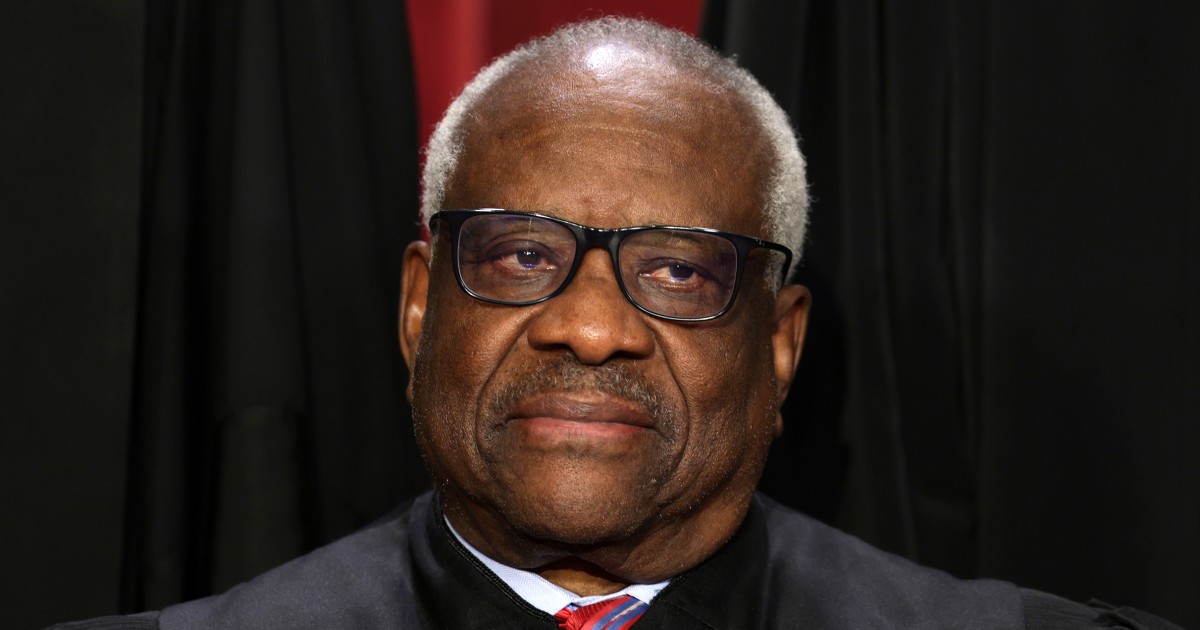It’s a sign that your legal theory is too extreme when Justice Clarence Thomas leads a lopsided majority in rejecting it. That just happened in a case that highlights not the greatness of the Supreme Court but, instead, the radicalism of the even-further-right 5th U.S. Circuit Court of Appeals, which the Thomas-led court had to reverse.
The appeal involved a payday lender-backed challenge to the Consumer Financial Protection Bureau. Breaking new ground, a Donald Trump-appointed 5th Circuit panel deemed its funding structure unconstitutional. The watchdog agency is funded through the Federal Reserve instead of annual appropriations from Congress. The panel said that violates the Constitution’s separation of powers and appropriations clause.
At the oral argument in October, President Joe Biden’s solicitor general, Elizabeth Prelogar, explained that it’s “the first time any court in our nation’s history has held that Congress violated the Appropriations Clause by enacting a statute providing funding.” Justice Elena Kagan told the lawyer who argued against the CFPB (Trump’s solicitor general, Noel Francisco) that he was “flying in the face of 250 years of history.” The consequences of ruling against the agency would be far-reaching, Kagan noted at the hearing, rattling off other government programs that could also be endangered.
But that dramatic outcome didn’t come to pass. The high court easily reversed the 5th Circuit on Thursday, with Thomas leading the way. He was joined by the lopsided, bipartisan majority consisting of Chief Justice John Roberts and Justices Sonia Sotomayor, Brett Kavanaugh, Amy Coney Barrett, Ketanji Brown Jackson and Kagan. He couldn’t pick up the votes of fellow far-right travelers in other cases, Justices Samuel Alito and Neil Gorsuch, who dissented.
“The statute that authorizes the Bureau to draw money from the combined earnings of the Federal Reserve System to carry out its duties satisfies the Appropriations Clause,” Thomas concluded his opinion. “Although there may be other constitutional checks on Congress’ authority to create and fund an administrative agency,” he wrote, “specifying the source and purpose is all the control the Appropriations Clause requires.”
Though it’s always noteworthy when the idiosyncratic Thomas does something relatively normal, the result wasn’t surprising, given the chilly reception the challenge got at the hearing. And as I wrote in October, this isn’t complete cause for celebration: “Rather, it would simply serve to highlight the extreme nature of the 5th Circuit by comparison — a court that, like the Supreme Court, was made more extreme by Trump and his fellow Republicans, and a court that felt emboldened enough by the current state of the GOP-led judiciary.”
Keep that in mind as the Supreme Court hands down the rest of its opinions this term from its hand-picked docket, while the 5th Circuit continues to make the justices look less extreme only by comparison. And even in this case, the high court wasn’t unanimous in doing so.
Subscribe to the Deadline: Legal Newsletter for weekly updates on the top legal stories, including news from the Supreme Court, the Donald Trump cases and more.


Leave a Reply